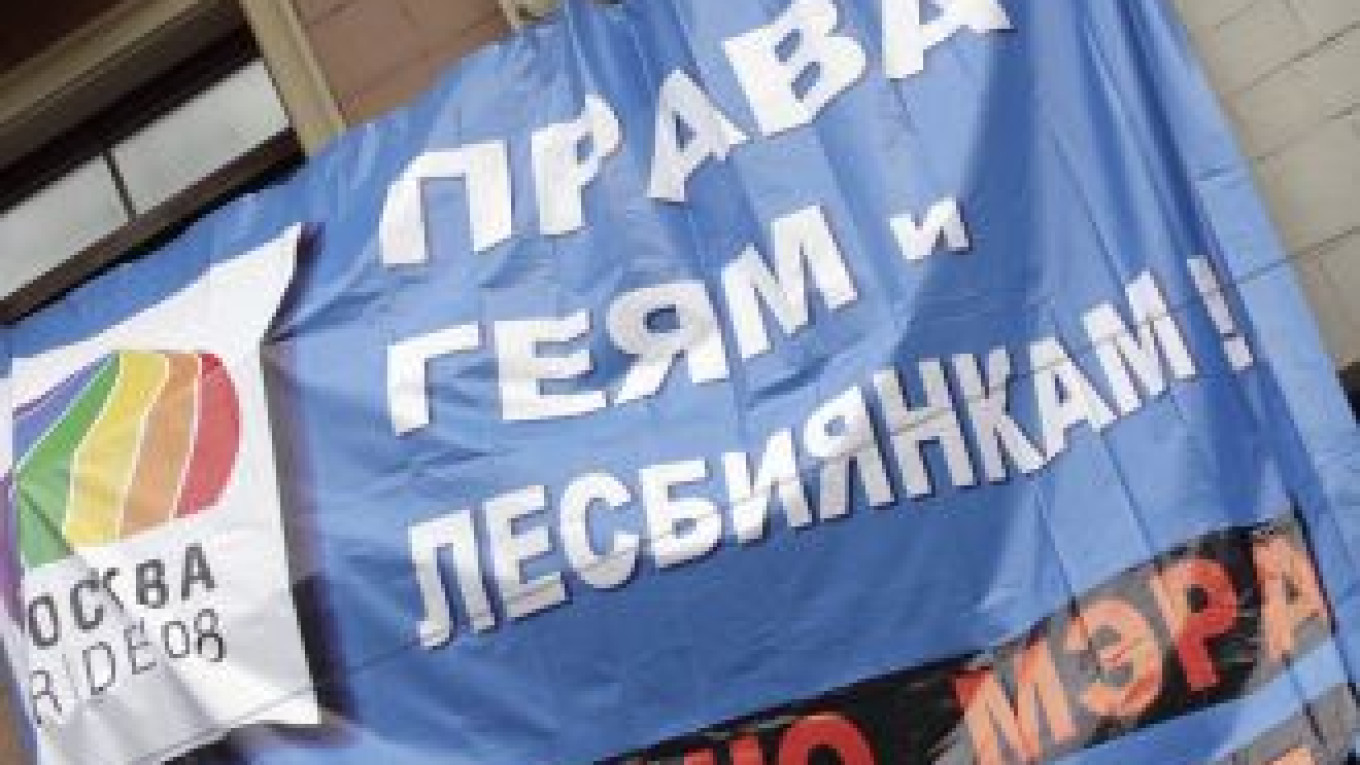A Russian Orthodox activist who beat a female reporter at a gay rights rally in front of the cameras has been cleared of criminal charges.
City police have closed a criminal case against activist Roman Lisunov, who attacked Novaya Gazeta reporter Yelena Kostyuchenko at an unauthorized gay rally in downtown Moscow in May, the rights group Agora said in an e-mailed statement Tuesday.
Police said a medical examination found no evidence that Kostyuchenko had suffered "harm to her health" in the attack and closed the case.
But Kostyuchenko's lawyer, Ilnur Sharapov, countered that the Criminal Code allows the prosecution of Lisunov for an attack that "didn't cause harm to the health but caused physical pain."
Sharapov said by phone that the police-ordered medical examination was also "strange" because it was held three months after the incident, while a medical check at the hospital immediately after the rally found that Kostyuchenko had "a scratch."
Kostyuchenko, who underwent several other medical examinations, said she would appeal the closure of the case to prosecutors because three of the examinations found that she had suffered an ear injury that led to hardness of hearing.
"It appears that in Moscow anyone can beat a person in broad daylight with witnesses and in front of the cameras and get away with it," she said by phone.
An inquiry to the police went unanswered. Lisunov could not be reached for comment.
Nikolai Alexeyev, a leading gay rights activist who organized the rally, said the authorities closed the case because they did not want to "set a precedent of criminal persecution against someone who offended a gay pride participant."
Meanwhile, the Justice Ministry has refused to register four gay rights organizations on technicalities such as "an address was indicated in the wrong place," said Alexeyev, the co-founder of the groups.
Alexeyev described the denials as illegal because the ministry is "obliged to suspend the registration process and give us time to eliminate mistakes."
Alexeyev said he would refile the registration papers and consider a lawsuit if the ministry denied registration a second time.
The law does not limit the number of times that registration papers can be submitted, but repeated attempts by opposition activists to register their groups have proved futile, just like attempts by gay rights activists to obtain permission from city authorities to hold a gay pride parade.
An inquiry to the Justice Ministry went unanswered.
A Message from The Moscow Times:
Dear readers,
We are facing unprecedented challenges. Russia's Prosecutor General's Office has designated The Moscow Times as an "undesirable" organization, criminalizing our work and putting our staff at risk of prosecution. This follows our earlier unjust labeling as a "foreign agent."
These actions are direct attempts to silence independent journalism in Russia. The authorities claim our work "discredits the decisions of the Russian leadership." We see things differently: we strive to provide accurate, unbiased reporting on Russia.
We, the journalists of The Moscow Times, refuse to be silenced. But to continue our work, we need your help.
Your support, no matter how small, makes a world of difference. If you can, please support us monthly starting from just $2. It's quick to set up, and every contribution makes a significant impact.
By supporting The Moscow Times, you're defending open, independent journalism in the face of repression. Thank you for standing with us.
Remind me later.


